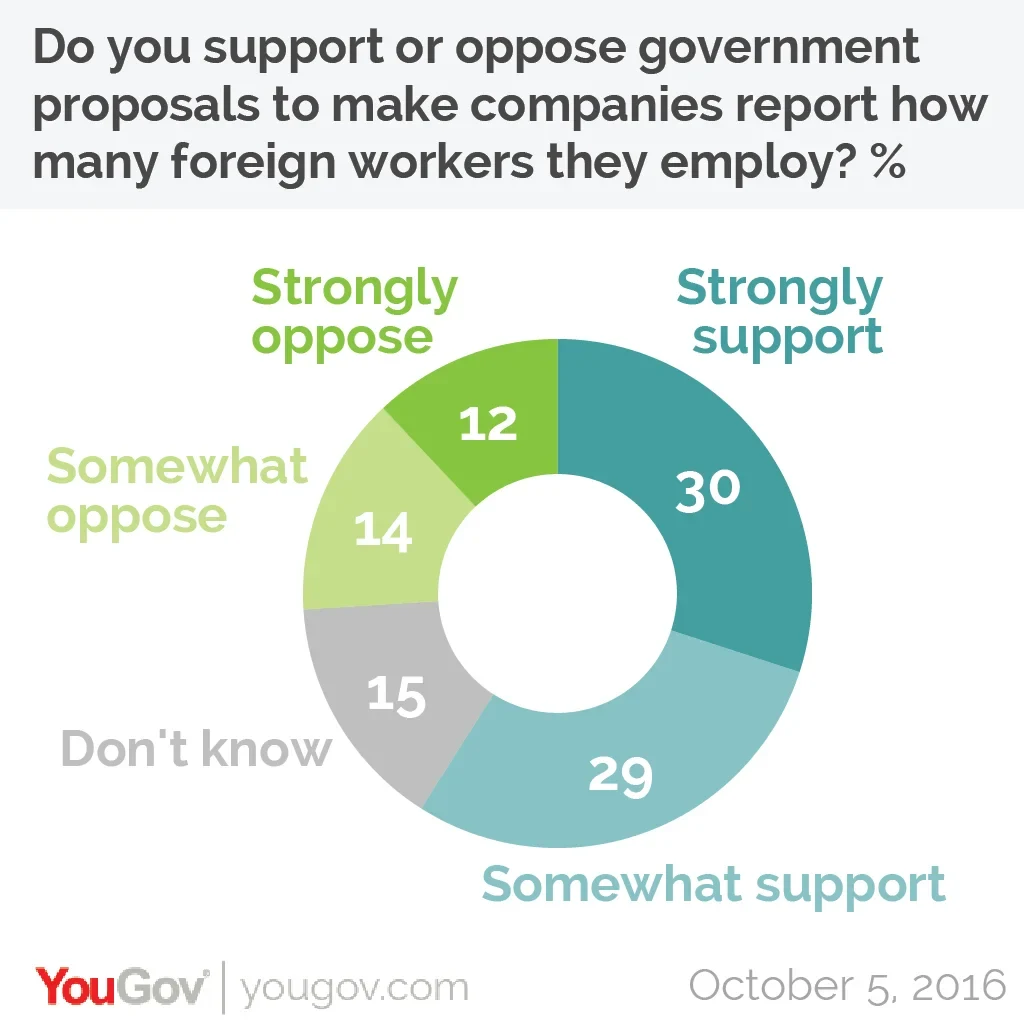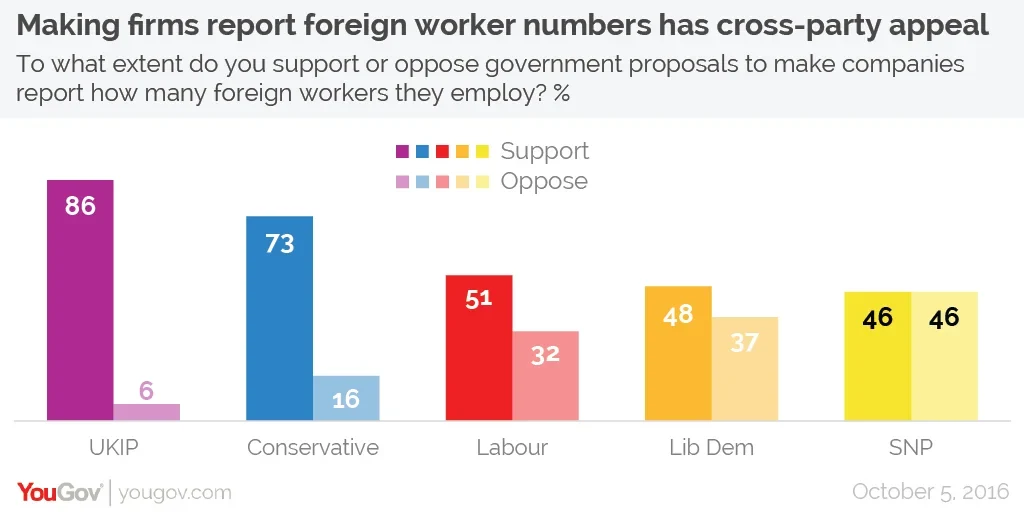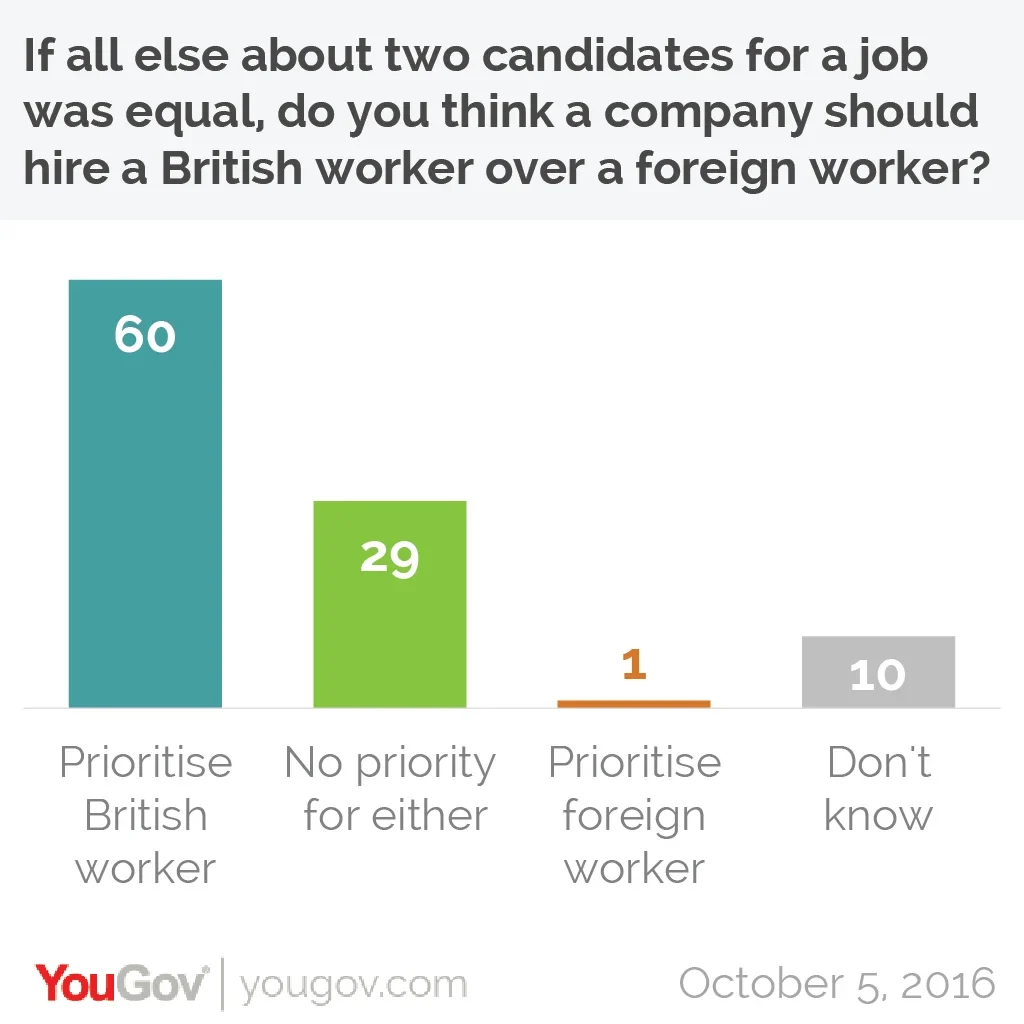By more than two to one the public support government proposals to make businesses publish how many foreign workers they employ
At the Conservative party conference this week, Home Secretary Amber Rudd announced plans to make firms publish what proportion of their workforce is non-British in a bid to encourage them to hire more British nationals. Although derided by many media commentators, new YouGov research finds that the policy is very popular across most of society.

Overall, 59% of people say they either strongly or somewhat support the proposals – more than double the 26% who somewhat or strongly oppose them.
Theresa May’s political strategy so far has been widely interpreted as an attempt to appeal to Labour voters. To that end this policy will be seen as a success, with a majority (51%) of Labour voters supporting the proposals.
The policy is also highly popular among UKIP and Conservative voters, with 86% and 73% respectively supporting it, whilst even amongst Lib Dem voters it is supported more than opposed by a decent margin (48% vs 37%). Only SNP voters aren’t in obvious support – and even they are split 46%/46% over the policy.

The policy is also popular in Labour heartlands of the North, Midlands/Wales – where 62% of people supported the policy – and amongst working class people (61% support). With a support rate of 58%, middle class people are actually about as likely to support the policy as working class people.
The only social group where more people oppose than support making companies report their foreign staff numbers is young people. Even amongst this group the results are close – 40% of people aged 18-24 oppose the policy, compared to 38% who support it. The next age group up – 25-39 year olds – support by policy at a rate of 50% to 30% opposed.

The Conservative’s recent announcements have been widely compared to Gordon Brown’s previous pledge to have “British jobs for British workers”. At the most fundamental level, the public are on board with such a philosophy. Asked whether a firm should hire a British candidate over a foreign one if the two were equally good for the role, six in ten people said that the British candidate should be prioritised – double the 30% who did not think the British candidate should have priority.
Photo: PA








